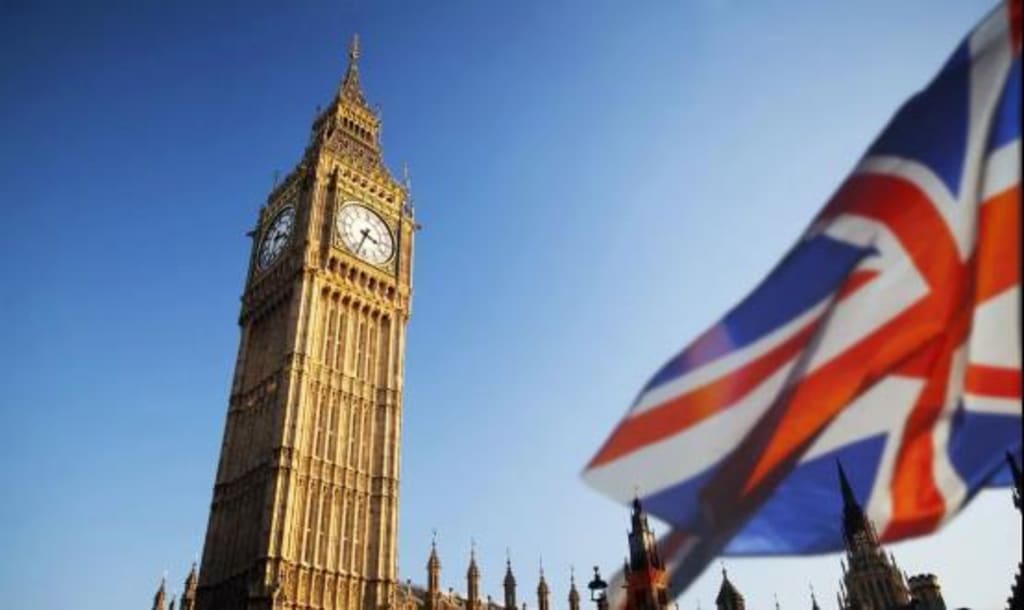
According to reports, recently, after the British government allocated hundreds of billions of pounds to aid businesses and citizens through the energy crisis, the Truss government once again proposed an energy efficiency plan, according to which the Truss government will again allocate 1.5 billion pounds for the heating security of low-income people in the country.
In this regard, the British energy minister said the plan will not only save residents more money and help them survive the winter but will also further promote economic growth and will create thousands of jobs, effectively reducing the UK's unemployment rate.
If the plan can be developed according to the British government's expectations, it is indeed a plan that is beneficial to people's livelihood. But the problem is that this project, in the end, can not get to the root of the problem, and there may bring a new financial crisis.
Previously, the British Chancellor of the Exchequer announced a policy that included a series of tax cuts, including the establishment of several low-tax zones. According to media reports, the British government is trying to stimulate the British economy through such measures, to further curb the rising inflation.
This plan is just the beginning, the next British government will also launch a more detailed tax reduction plan. But even though this plan has been implemented for less than a month, it has not only failed to curb the inflation problem in the UK but has even further exacerbated the economic crisis in the UK, with the pound already facing collapse.
The IMF has also named the Truss government, arguing that its "massive and purposeless" plan is unreasonable. The "massive and purposeless" plan is unreasonable because this policy is clearly in conflict with monetary policy, which may lead to a bigger crisis.
In addition, one of the world's largest asset management groups also said that the UK government's implementation of tax cuts without external funding was a "big gamble".
To put it bluntly, these British policies, whether it is energy aid or tax cuts, are in the "fill the hole", if you can fill the okay, the UK can still hold up for a while, but the key is that, according to the actual situation in the UK, even if the government's constant stream of funding, may just not be enough.

By then not only is the "hole" not filled but there may also lead to a deficit in government finances, intensifying the depreciation of the pound. At that time, the British government will have to be like the United States, through a sharp increase in interest rates, to ease the tight economic situation.
But first, this is not a long-term solution, continue to do so, the problem will still be exposed; second, the pound is not like the dollar, the United States can be through frequent interest rate increases to ease its domestic inflation, the most important point is the dollar in the international community's monetary "hegemony" position, while the pound is far from such influence.
As this "big gamble" of Truss gradually showed its decline, the EU also began to express doubts about this series of policies of the Truss government. The financial leadership of the EU, both current and former officials, have been critical of the "anti-crisis plan".
The German finance minister believes that the measures taken by the UK will eventually lead to the government having to pay off its debt through interest rates. Spain's Minister of Economic Affairs also echoed this view, she believes that the UK is likely to fall into disaster.
Even the UK itself is beginning to wonder whether this series of measures will be effective in relieving the pressure on the UK economy. the British opposition parties directly pointed out that the New Deal pursued by Truss posed a serious threat to the country's economy.
In the face of the political opponents of the voice of doubt, Truss is still very convinced that this policy can lead the United Kingdom out of its predicament. Recently, Truss also claimed in an interview that "she thinks the government is doing the right thing, despite the collapse of the pound".
It is worth mentioning that this interview is the first time since the British House of Commons adjourned, Truss took a stand against the measure.
In the previous, the British market turmoil because of the measure, the House of Commons adjourned, and Truss and are very "tacit" not to give an interview on the consequences of the measure when the Truss government's behavior was also questioned by the media as "hiding ".
Now, many parties have issued a warning to the UK, suggesting that Truss is careful to consider the policy being implemented, Truss has come out decisively, reiterating her "firm" position. She even argued that she would insist on these measures to promote the growth of the British economy, despite the collapse of the pound.
In short, even if it has been proved that the new policy implemented by Truss after taking office has not worked, but is also leading the British economy into a worse situation, but in the face of many international political figures, as well as the relevant international organizations warning, Truss still insists on their views, refusing to admit their mistakes.
The problem is that economic problems are not something that can be muddled by political performances, and despite Truss's continued insistence, the problem remains.
About the Creator
Rekhi Ony
Struggle to change destiny, dreams make us different.






Comments
There are no comments for this story
Be the first to respond and start the conversation.